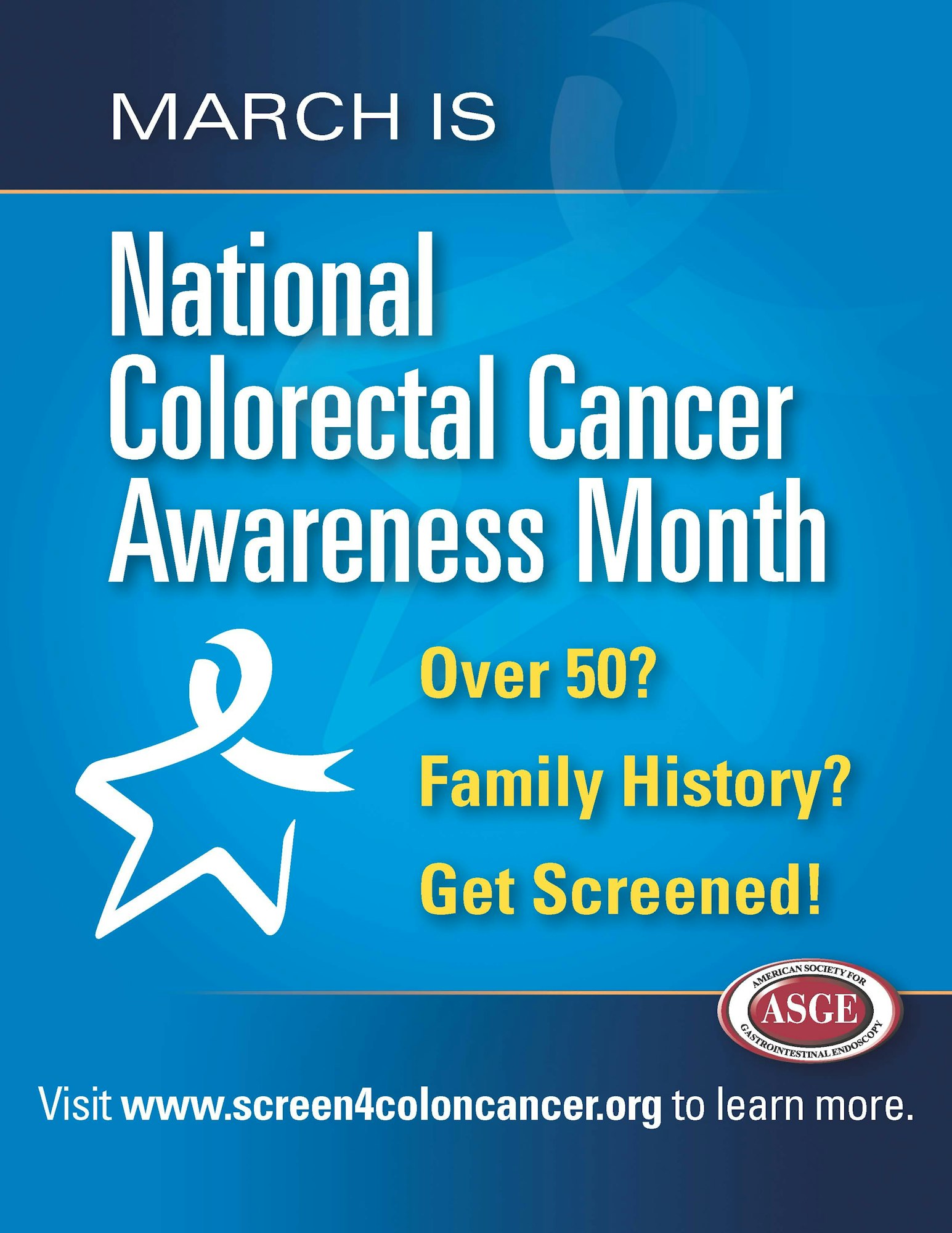National Colorectal Month - March, 2020
National Colorectal Cancer Awareness Month reminds us that early detection is key.
According to the American Cancer Society, more than a million people in the United States count themselves as survivors. While early detection and treatments make a difference, there is more that can be done. Knowing the causes and risk factors help prevent colorectal cancer.
There are several risk factors we can control.

- Diet – Studies show that diets rich in red and processed meats may contribute to colorectal cancer risks. Also, how we prepare our proteins may increase our risk, too. Grilling, frying and high-temperature cooking release chemicals that may contribute to colorectal cancer risks. Diets full of fruits, vegetables, and whole grains reduce our risk of colon cancer as well as other health risks.
- Exercise – Sedentary lifestyles and obesity are two more risk factors for colorectal cancer. Once again, physical activity helps to reduce our risk factor for another disease.
- Smoking and heavy alcohol use – Quit the one and limit the other. Ask your physician if you need help with either one.
- Family history – While you can’t control this, you can know it. Report it to your primary care physician so if your family history shows an increased risk for you, they can decide if you need early screening. Knowledge is power.
HOW TO OBSERVE
Please contact the Clinic at (760) 876-1146 to ask how you can receive a Colon Screening kit (FOB).
You can also visit www.cancer.org to learn more about risk factors, early detection, and treatment. Use #ColorectalCancerAwarenessMonth to share on social media.
HISTORY
President Bill Clinton dedicated March as National Colon Cancer Awareness Month in 2000.
